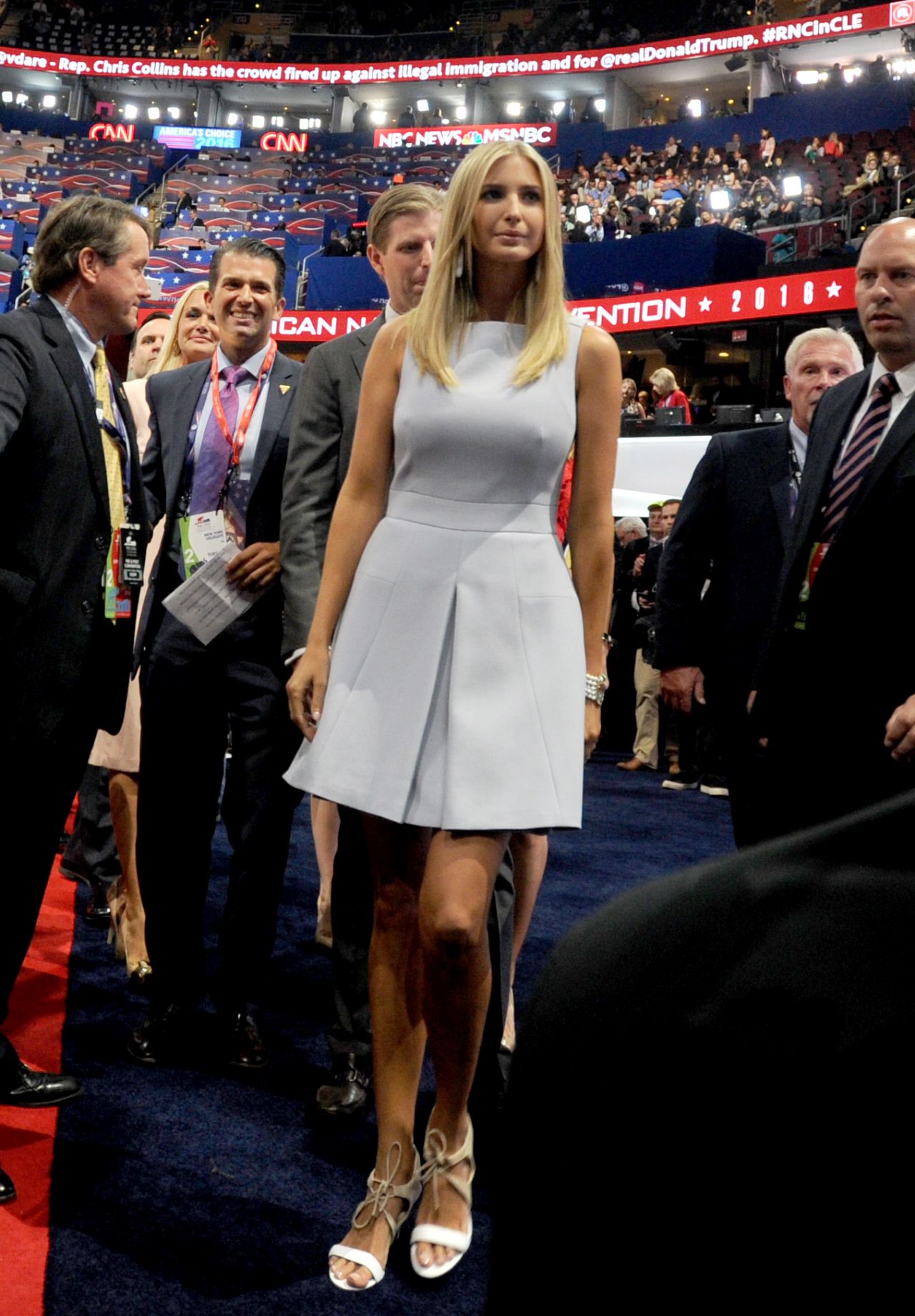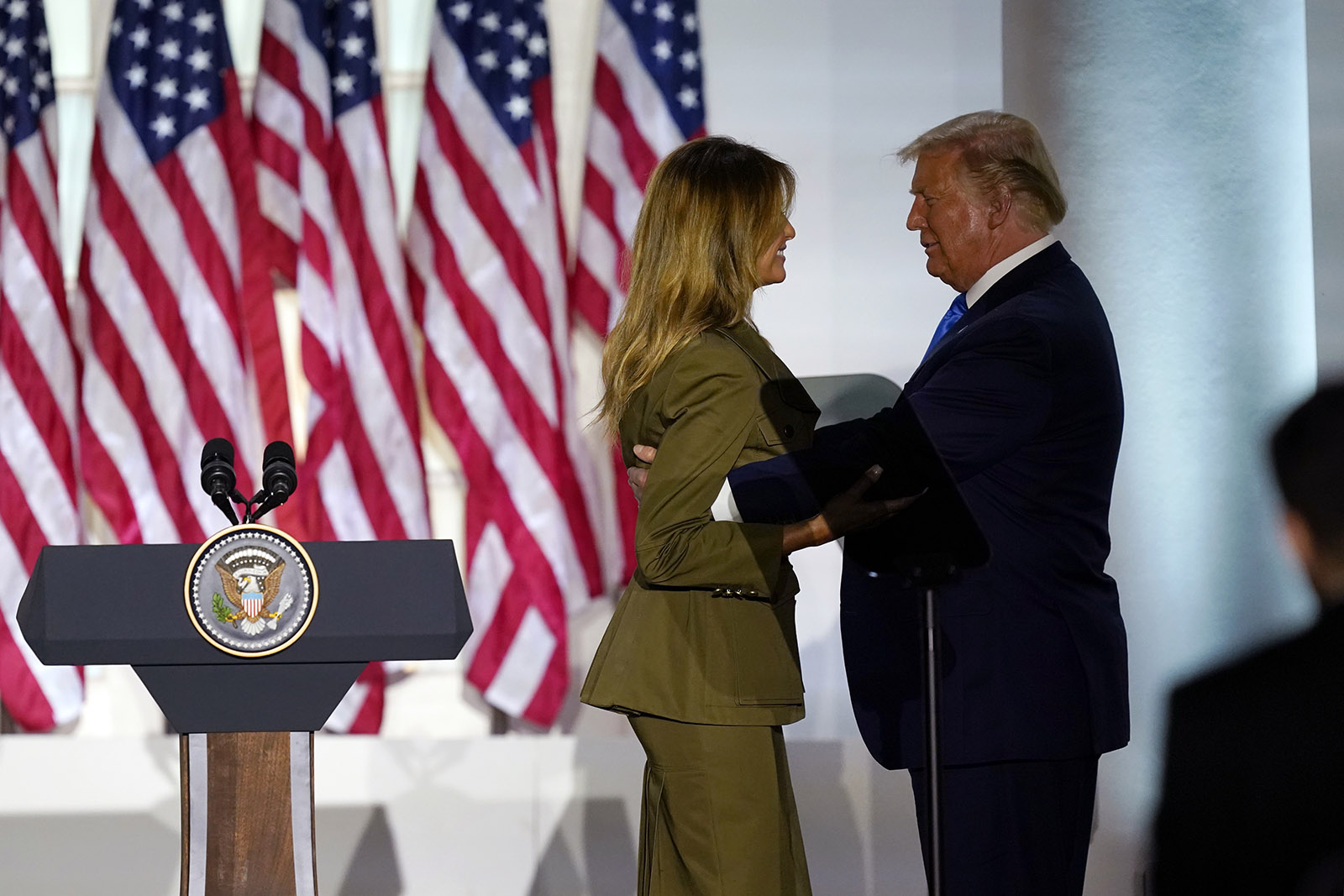The Allure of the Spotlight: Celebrities at the Republican National Convention
Related Articles: The Allure of the Spotlight: Celebrities at the Republican National Convention
Introduction
With great pleasure, we will explore the intriguing topic related to The Allure of the Spotlight: Celebrities at the Republican National Convention. Let’s weave interesting information and offer fresh perspectives to the readers.
Table of Content
The Allure of the Spotlight: Celebrities at the Republican National Convention

The Republican National Convention (RNC), a quadrennial event where the Republican Party formally nominates its presidential and vice-presidential candidates, has long attracted a diverse array of individuals, including prominent figures from the world of entertainment. While the convention’s primary purpose is political, the presence of celebrities adds a layer of spectacle and public interest, potentially influencing the narrative surrounding the event and its participants.
A History of Celebrity Endorsements:
The phenomenon of celebrities lending their names and influence to political causes is not new. Throughout history, actors, musicians, and athletes have actively engaged in political discourse, often aligning themselves with specific ideologies or candidates. In the United States, the 20th century saw a gradual increase in celebrity involvement in politics, with iconic figures like Frank Sinatra, Marlon Brando, and Jane Fonda becoming vocal proponents of various social and political movements.
The rise of television and social media further amplified the reach and impact of celebrity endorsements. The ability to connect with millions of viewers and followers through platforms like Twitter and Instagram has made it easier for celebrities to mobilize their audiences and influence public opinion.
Celebrities at the RNC: A Closer Look:
The Republican National Convention has historically attracted a notable contingent of celebrities, often drawn to the party’s conservative platform or its emphasis on individual liberty and free markets. The presence of these figures has sparked both praise and criticism, with some arguing that their participation adds entertainment value and draws attention to the event, while others contend that it trivializes the political process and distracts from substantive policy discussions.
Analyzing the Impact:
The impact of celebrity endorsements on political campaigns is a complex issue with no straightforward answers. Research suggests that while celebrities can influence public perception of a candidate, their impact on voter behavior is less clear-cut. Some studies have shown that celebrities can effectively mobilize their fan bases and encourage political engagement, while others have found that their endorsements have limited influence on actual voting decisions.
The Role of Social Media:
The advent of social media has significantly altered the dynamics of celebrity involvement in politics. Platforms like Twitter and Facebook provide celebrities with a direct channel to communicate with their followers, bypassing traditional media outlets and enabling them to engage in real-time political discourse. This immediacy and accessibility have made it easier for celebrities to express their views and mobilize their audiences around specific causes or candidates.
Examining the Arguments:
Those who support celebrity involvement in politics argue that it can help to broaden the appeal of political discourse, making it more accessible and relatable to a wider audience. Celebrities, with their large followings and cultural influence, can bring attention to important issues and encourage civic engagement, particularly among younger generations who may be less engaged in traditional political processes.
Critics, on the other hand, contend that celebrity endorsements often lack depth and substance, focusing on superficial aspects of a candidate’s personality or image rather than their policy positions. They argue that celebrities are primarily motivated by self-promotion and that their involvement in politics can trivialize the importance of informed decision-making.
FAQs Regarding Celebrities at the RNC:
1. Why do celebrities attend the RNC?
Celebrities attend the RNC for a variety of reasons, including personal beliefs, political convictions, and a desire to support specific candidates or causes. Some may be drawn to the party’s platform, while others may see it as an opportunity to raise their own profile or engage in a broader cultural conversation.
2. What is the impact of celebrity endorsements on political campaigns?
The impact of celebrity endorsements on political campaigns is a complex and debated issue. While celebrities can influence public perception of a candidate, their impact on voter behavior is less clear-cut. Some studies have shown that celebrities can effectively mobilize their fan bases and encourage political engagement, while others have found that their endorsements have limited influence on actual voting decisions.
3. Do celebrities have a responsibility to use their platform for political activism?
The question of whether celebrities have a responsibility to use their platform for political activism is a matter of individual choice and personal conviction. Some argue that celebrities, with their large followings and cultural influence, have a moral obligation to speak out on important social and political issues. Others contend that celebrities should not be expected to engage in political discourse and that their primary responsibility is to entertain their audiences.
4. How has the role of celebrities in politics changed with the rise of social media?
The rise of social media has significantly altered the dynamics of celebrity involvement in politics. Platforms like Twitter and Facebook provide celebrities with a direct channel to communicate with their followers, bypassing traditional media outlets and enabling them to engage in real-time political discourse. This immediacy and accessibility have made it easier for celebrities to express their views and mobilize their audiences around specific causes or candidates.
Tips for Celebrities Considering Political Involvement:
1. Understand the Issues:
Before engaging in political discourse, celebrities should thoroughly research the issues at hand. This includes understanding the complexities of policy positions, the history of relevant legislation, and the potential consequences of different political actions.
2. Be Prepared for Criticism:
Celebrities should be prepared to face criticism for their political views. Not everyone will agree with their opinions, and they should be prepared to engage in respectful and constructive dialogue with those who hold opposing viewpoints.
3. Focus on Substance:
While celebrities may attract attention through their personal brand and charisma, their political engagement should be grounded in substance. They should focus on articulating their policy positions and engaging in meaningful conversations about the issues that matter to them and their followers.
4. Use Their Platform Responsibly:
Celebrities have a responsibility to use their platform responsibly. They should avoid spreading misinformation, promoting harmful stereotypes, or engaging in inflammatory rhetoric. Instead, they should strive to use their influence to promote dialogue, understanding, and positive change.
Conclusion:
The presence of celebrities at the Republican National Convention, and in the broader political landscape, is a reflection of the evolving relationship between entertainment and politics. While the impact of celebrity endorsements on voter behavior remains a subject of debate, their ability to influence public perception and mobilize audiences is undeniable.
As celebrities continue to engage in political discourse, it is crucial for them to approach this role with a sense of responsibility, focusing on substance over spectacle and utilizing their platform to promote constructive dialogue and informed decision-making. The future of celebrity involvement in politics will likely continue to evolve, reflecting the changing dynamics of media, technology, and public engagement.








Closure
Thus, we hope this article has provided valuable insights into The Allure of the Spotlight: Celebrities at the Republican National Convention. We thank you for taking the time to read this article. See you in our next article!